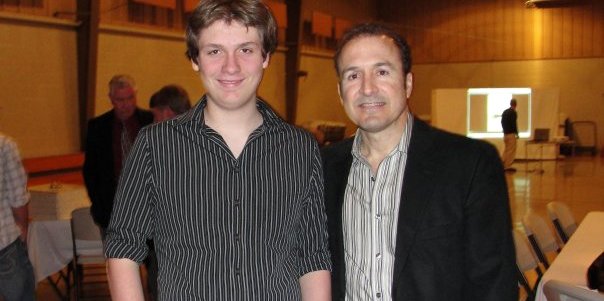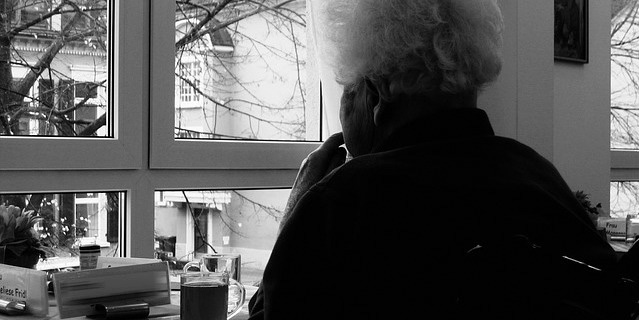Busting 5 Myths about Sex During Midlife

There is no doubt that our bodies change as we get older, and it seems as if middle age is the culmination of all of our fears surrounding aging. Estrogen and testosterone decrease in both men and women as they age and this can cause many shifts in our emotions, physical appearance, and viewpoints. It is common to experience changes in appearance, weight, libido, behavior, and sexual response. Because of this, many people end up believing countless myths about sex as they age. Well, today I am here to bust those myths!
1. As you age, you lose interest in sex.
People of every age have a desire to have sex. However, after you make it to midlife your sexual desires change. It usually just takes a time to figure out how your body and desires have changed. To prove this point, a National Aging Survey found that over 70% of people over the age of 60 who were having sex regularly found their sex lives more satisfying than in their 40s.
2. Men lose their ability to get an erection as they get older and women lose the ability to orgasm.
Aging does not cause erectile dysfunction – changing hormone levels do. As men age, they simply need more physical stimulation to become aroused. Also, women’s orgasms actually tend to increase in frequency and intensity after menopause due to the shift of hormonal ratios within the body.
3. Women lose their desire to have sex because of the psychological and emotional factors surrounding menopause.
Usually, the physical factors outweigh the emotional and psychological factors when it comes to decreased sex drive for women. When going through menopause, the decrease in estrogen can cause vaginal dryness. If sex is uncomfortable because of vaginal dryness, simply speak to your doctor and find a solution that works for you.
4. Middle-aged people are done exploring their sexuality.
Baby boomers are reporting a surprising willingness to explore their sexuality in many different ways. They are exploring tantric sex, taking retreats surrounding sexuality, and reaching out to sex therapists and coaches.
5. By the time you are in midlife, your sex has become boring and you’ve lost your desire to be sexually adventurous.
People who are in middle-age are very interested in learning new ways to pleasure each other (since the way they are stimulated often changes due to hormone shifts). They are reading books, watching videos, and attending retreats to learn new skills.
Sources:
The Truth About Sex After 50
Busted! 5 Myths About Sex After 50
Sexual Issues in Midlife
Parenting Adult Children (Part 2)
See Part 1 of this story here.

Gone were the days when I could direct his actions. Gone were the days when I could logic/convince/velvetly force him into anything. Gone even were the days where my opinion mattered at all. Though individuation for a growing person begins much younger, I was present to the full brunt of it when he was now out of house and completely out of influence.
Thankfully, I have a dear friend and prayer partner who passed through this phase many years earlier with her two sons and yet was still “writing the book” on parenting of adult children. She called this phase unique in that the kid-come-adult is trying to be an adult – but doesn’t know how – and the parent is trying to not micro-manage their life – but doesn’t know how. It’s a very weird and challenging stage for both young adult and parent alike.
The first bit of wisdom she passed on was to cease all attempts to advise: regardless, whatsoever, notwithstanding anything! Then, the challenge was to simply acknowledge whatever could be acknowledged about the paths, choices, or directions he was taking…”challenge” because, as the parent, we think we know better. The idea was to become an acknowledging and validating machine, and close the mouth of “the wise one”.
What that also meant was being able to hear the need for financial support and stand strong in allowing the necessary path of growth from kid-wanting-to-be-adult to, possibly, actual adulthood. That is a tough one.

There’s a story I once heard about a man who saw a butterfly just beginning its exit from a cocoon. He thought he would aid in the process by using his fingernail to help nick away parts of the cocoon shell so that the butterfly could get out easier. What happened, however, once the shell was eventually removed, was that the “butterfly” became a would-be butterfly because, as the bloated insect lie there with wings full of fluid, there was no way it would ever be able to fly. The very act of having to force itself out of the cocoon was a critical process in squeezing out the fluid so that the wings would be light, airy, and flight-worthy.
Learning to let my son learn what he needs to learn – without meddling one way or the other – is, for me, a big Back Forty growth endeavor.
Yet another more recent bit of evolved advice from my sage veteran parent partner was this: when he tells me something he did that I feel like praising, instead of being the one approving and acknowledging of that action, I am to put it back to him: “How did that make you feel?” This act of turning him toward the source of all approval as being within him vs. my “guidance” slipping in through some side door of “approval” is another way of pulling back so my adult child can become adult.
I’m in no way through this process, and we all know that our kids are our kids for life. Yet going through this requisite phase of Back Forty parenting upgrade is a unique period in which I’m learning just a thing or two about a thing or two.
Parenting Adult Children (Part 1)

One of the many new dimensions of our midlife, The Back Forty, is the necessity to parent differently. I’ve practiced this a great deal over the last several years, as my son went from 17, with an appropriately growing voice in how his life goes, to now being 22.
I was an “involved” parent all through his growing up. Following a divorce when he was 2½, I focused my half-time custody on all the typical things a dad and son would do as he grew: YMCA Indian Guides, AYSO soccer, YMCA swimming (first Guppy, then Minnows, then Sharks), Tai Kwon Do (first Tiny Tigers, then…)…moving as he got older into Cub and Boy Scouts, geckos, rats, fencing, and persistent video game systems (Gameboy, Nintendo, X-Box). Not to mention church on Sundays where he took classes over the course of 12 years. My involvement and guiding direction of my son’s life was strong.
From age 2½ to 7 or so, my parenting was pretty default: play, learn, discipline with timeouts when necessary…but all fairly easy and without thought. Around that time, however, I went through a custody suit lasting a couple years. One of the many blessings that came out of that whole process (from a Back Forty INFUSE Program perspective) was a more conscious study of parenting.
Parenting was different now than in the days of my simple, country upbringing. Plus, I lived in California, in many ways a far-cry skewed mentality than that of my Texas roots. Having come to California specifically for consciousness reasons, I was always on the touchy-feely side of most things anyway. Still, when California new-age consciousness and attitudes about the raising of indigo/millennial/Gen Z individuals come together, parenting looked a lot like coddling to my tainted eyes.

Upon moving out of the parents’ house, however, parental views about how to relate to “adult” kids differ… especially among divorced parents. My own (right or wrong) basic stance was “If you’re going to school, I’m supporting you (financially). If you’re not, I’m assuming you want/need to learn about life…so I’ll support you in that too by letting you support yourself.”
I’ll relieve you of the litany of differences of opinions and challenging interactions a stance like that can take – both with adult child and ex – and yet something became very clear: I needed to find a new way to relate to my son…
To be continued…
Read Part 2 here.
Aging Parents – What Should I Do?

Aging parents.
It’s a topic that no one likes to think about, let alone talk about. Our parents have always been the strong ones, the ones in charge, the knowledgeable ones. However, as we ourselves grow older, we are forced to come to the realization that our parents are growing older as well.
Sometimes we realize it all of a sudden, we go to visit them and suddenly they seem weaker and more frail. Sometimes it is a slow realization; they start forgetting things, walking becomes more difficult for them, they seem less energized, they become more irritable. However we come to the realization, it is never easy for us. As their children it is natural that we feel sadness, concern, anxiety, fear, and even anger at this realization. It’s normal and it’s okay. The important thing to focus on is the next step.
Depending on if you live near your parents or live far away, there are different options. Below I have created a couple links for you to start exploring your options. Helping your parents through the aging process is never easy, but there are ways to make it easier.
-
They May Not Mean To, But They Do (a new novel about aging parents)
Although this process is full of anxiety and sadness, don’t forget that there is always the opportunity for fun as well. “How can this be fun?” you ask. Just check out these photos by Tony Luciani who is the caregiver of his mother. Click here to see the whole article!





